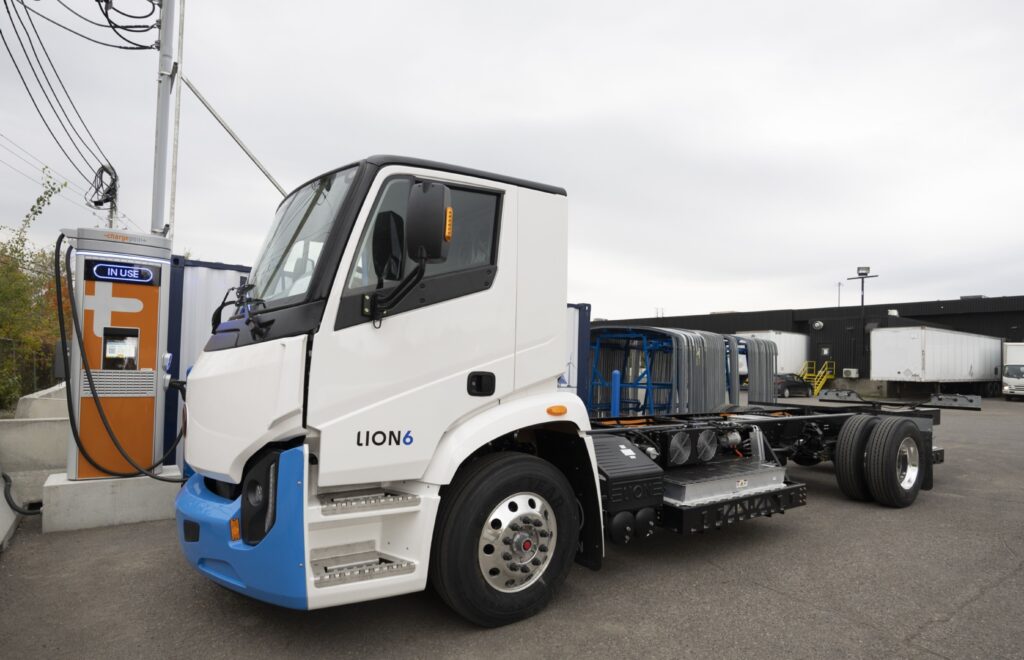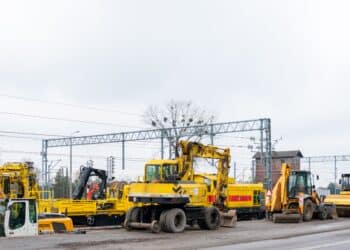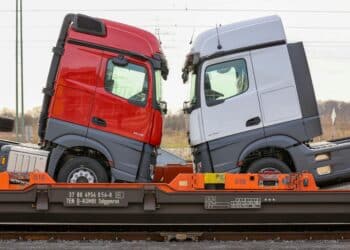EV manufacturers Nikola and Lion Electric posted contrasting sales results in the third quarter as both companies cut costs.
The mixed results came despite government officials’ aggressive push for an increasing number of EV trucks to be manufactured and sold to meet sustainability goals.
While EV trucks can be advantageous for some, they are not ready for widespread adoption, Duane Welty, head of zero-emission vehicles and transportation technology strategy at San Leandro, Calif.-based dealership Peterson Trucks, told Equipment Finance News.
“The problem is that they are always focused on getting a product out, but that product is very narrow in focus,” he said. “I don’t think enough analysis was really put into the type of truck to have a plan.”
Lion Electric revenue plunges
Commercial bus and truck manufacturer Lion Electric reported $30.6 million in revenue in Q3, down 61.9% year over year, according to its Nov. 6 earnings statement.
Vehicle deliveries fell 63.7% YoY to 89 units. The company’s order book comprised 1,590 vehicles and was valued at roughly $420 million as of Nov. 6, down from 1,994 vehicles and a $475 million valuation at the time of its Q2 earnings release in July.
Subdued sales and restricted funding have prompted Canada-based Lion Electric to scale back production, lay off employees and sublet a portion of its production facility to preserve liquidity, founder and Chief Executive Marc Bedard said during the Q3 earnings call.
“Despite these initiatives, the challenges that we had signaled in the first half of the year continued in the third quarter to put significant pressure on the company from a cash flow and liquidity standpoint,” he said. “The continued delays associated with the Canadian Federal [Zero Emission Transit Fund] program, the timing of the rounds in the U.S. [Environmental Protection Agency] program and our liquidity position impacting our production cadence have negatively impacted our revenues.”

Nikola dominates fuel-cell EV market
Sales revenue for Class 8 truck manufacturer Nikola totaled $24.8 million in Q3, compared to a $2.4 million loss in Q3 2023, according to its Oct. 31 earnings statement.
Wholesale deliveries of hydrogen fuel-cell electric trucks rose 22% quarter over quarter to a record 88 units. The average sale price for fuel-cell EVs fell 7% QoQ to $361,000, Nikola Chief Financial Officer Tom Okray said during the company’s earnings call.
Phoenix-based Nikola has a more than 90% share of the heavy-duty fuel cell EV market in North America, “proving there’s a market for heavy-duty zero-emission vehicles,” President and Chief Executive Steve Girsky said during the call.
“Regarding fuel cell electric vehicles, we’re the only OEM expanding the market or increasing the pie,” he said. “As the market leader and pioneer, we’re also driving end-fleet adoption. Year-to-date, in-service fleets have grown 78% to 16 distinct end fleets from 9 in Q1. Across both powertrains, 32 discrete end fleets have deployed Nikola fuel cell or battery electric trucks.”
Fleet companies such as J.B. Hunt, Keenan Advantage Group and DHL have recently deployed Nikola’s fuel-cell EVs, Girsky said. The company expects to wholesale 300 to 350 fuel-cell EVs in 2024, unchanged from its projection after Q2.









